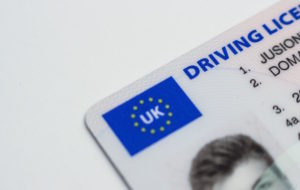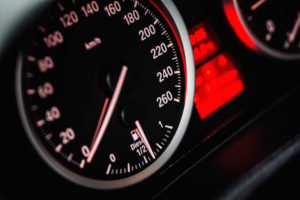Learning to drive doesn’t come cheap and learner driver insurance can be a big chunk of that cost. Learner drivers will almost always pay more for their insurance than someone who has many years of claim-free motoring. But there are ways to help keep the costs down. To make life easier, we’ve listed 21 things you should know about your learner insurance to get the best price:
1) First things first: understanding the costs of learning to drive
Paying for tests, lessons, car, and insurance all mount up. There’s no minimum amount of practice you’ll need to undertake before you take your driving test. But the Driver and Vehicle Standards Agency indicates that it can take an average of 45 lessons, which can cost around £24 each, resulting in an outlay of over £1000. Although you can learn just in your instructor’s car, the more practice you can get in between lessons the better. You might be spending money on your insurance, but his can be a good investment if it means you’ll pass sooner with less professional lessons.
 2) Driving without insurance – the consequences
2) Driving without insurance – the consequences
If you’re learning to drive in someone else’s vehicle, you’ll need to make sure you’re insured. Don’t be tempted to drive without the right insurance as if you are found driving without appropriate insurance you can receive an unlimited fine, be banned from driving (after you do pass your test) and get up to eight penalty points, which will make your future insurance premiums even higher.
3) Learner driver exclusions that could catch you out
If you are practising your driving with a family member or friends, by law they must:
- Be aged 21 years old or more.
- Have held a full driving licence (from countries in the EU) for at least three years.
Although this is the legal requirement, be aware that some insurance policies may insist on a minimum age of 25 years or more for anyone supervising you as you drive.
Get a quote for learner driver insurance now
4) Learner driver insurance curfews
As well as specifying the minimum age of another adult supervising you as you learn to drive, some insurance companies may specify the times that you can drive. A curfew might mean you can’t be on the road between 10pm-6am. To avoid voiding your cover, make sure you know if you have a curfew, and ensure you’re not driving at any time that is not permitted.
 5) Pros and cons of the different insurance options for learner drivers
5) Pros and cons of the different insurance options for learner drivers
-
Insured on your own car
- pros: you’ll start to build up your no claims bonus
- cons: it can cost more than if you are a named driver on someone else’s policy
-
Insured as a named driver on another vehicle(as long as you are not the main driver)
- pros: this is often a cheaper option than being insured on your own car
- cons: you won’t start to build up any no claims discount
-
Short-term learning driver insurance
- pros: this can be the cheapest insurance option for learner drivers and is good if you’re practising your driving in someone else’s car relatively infrequently
- cons: you can’t choose this option for your own car. Cars need to be insured unless they are declared as off the road (SORN)
- cons: it can work out more expensive than an annual policy if you plan to practise regularly over a longer period of time
6) Why is learner driver insurance so expensive?
Insurance costs are based on risk. If you’re a very safe learner driver, it may seem unfair that you’ve got to pay so much for your insurance. But statistically, young drivers take more risks and are more likely to have an accident. That can be because they have less experience of the road and can’t judge situations in the way that more experienced drivers are able to. But it means one thing – higher premiums.
7) Discover the cheapest cars to learn to drive in to cut insurance costs
It doesn’t always follow that the cheapest cars to buy will be the cheapest to insure. In fact the replacement value of your car is only one of many factors that will influence your premium. And many learner drivers will discover that the cost of their annual insurance is more than the value of the car itself.
All car makes and models are given an insurance rating. And the higher the rating, the higher your car insurance will be. According to autoexpress.co.uk the models listed below all fall into group 1 or 2 and are the 10 cheapest to insure in the UK this year:
- Dacia Sandero 1.2
- Hyundai i10 1.0
- Kia Picanto 1.0
- Renault Twingo 1.0 Expression
- SEAT Mii
- Skoda Citigo
- Skoda Fabia
- Smart ForFour
- Vauxhall Corsa
- Volkswagen Up!
It’s also worth bearing in mind that some insurance companies may have a maximum value of vehicle that they’ll insure for a learner driver, which in some cases can be as low as £30,000.
 8) Shop around for your insurance to secure a better deal
8) Shop around for your insurance to secure a better deal
As a first step, you should always get as many insurance quotes as you can. Like everything, it pays to shop around if you’re looking for the best price deal. Different insurance companies calculate risk in different ways, which means that you could see a big difference between prices for two very similar insurance deals. Park Insurance offer free, no-strings learner driver insurance quotes.
9) Seeking expert help can save you money
You can use a specialist broker as an easy way to find the best price insurance to suit your needs. As well as taking the headache out of shopping around for the best price, using a broker can unlock special prices that you won’t find on the high street.
10) Become a named driver
You can save money if you are a named driver on the policy of someone older, more experienced and claim free. This is only suitable if you are not the main driver of the car. If it is discovered that you actually drive the car more than you say you do, your insurance will be invalidated and any claim refused. It’s called fronting and it’s illegal.
11) Add another driver to your policy to drive down costs
If you’re taking out learner driver insurance on your own car as the main driver, you can sometimes reduce insurance costs just by adding someone who is older and more experienced to the policy. This could be a parent or relation and should be someone who would be likely to drive your car. Beware though, in some cases adding someone to the policy could increase the premium, especially if they do not have a claim-free record.
12) Consider short-term insurance options to reduce premiums
You could consider opting for short-term insurance if you are not regularly practising your driving. This cover can be arranged for between 1-28 days and represents good value for money if you will only be driving the car for a limited time.
13) Don’t modify your car if you want cheap insurance
It may be tempting to pimp up your ride, but modifications to your vehicle can drive up costs even if they are only cosmetic. Any modifications that alter the performance of your car also need to be declared. If you don’t, you risk invalidating your insurance. (We’ve written a guide to modified car insurance, if you want to learn more)
14) Do add extra security
Alarms and immobilisers are one modification you can make that will actually help to reduce your premiums. They make it harder for someone to steal your car, and your insurance company will usually reward you for upping security in this way.
Parking your car in a secure location each night, for example in a locked garage, is also safer and can mean lower premiums. Make sure you tell your broker where you park as this could help them to secure a better price. Even parking on a driveway instead of the street could save you money.
15) Drive safely to keep everyone happy
Any claims you make on your insurance will see your insurance premium shoot up in the future. So drive carefully and safely.
If you’re being insured as a learner driver on someone else’s policy, it can be good to know that their no-claims bonus is protected if you do have an accident. If that’s important to you, speak to your broker to make sure the car owner’s no-claims bonus is protected.
16) Don’t speed or use your phone behind the wheel unless you want to lose your licence before you even pass!
All driving penalties are likely to push up your insurance price, so always follow the law. Also, remember that points are transferred to your full licence if you pass your test while they are still valid. And you’ll lose your licence if you rack up six or more penalty points within two years of passing your test.
17) Opt to pay a higher excess to cut premiums
The excess is the amount you agree to pay automatically in the case of a claim. For this reason, by increasing this amount you can usually reduce your insurance premium. But don’t be tempted to go too high or you may find yourself unable to pay if something unforeseen does happen.
18) Make sure your car is safe
Carrying out the annual MOT is essential if your car is over three years old. But keeping your car safe and roadworthy doesn’t stop there. It’s also worth also regularly checking things like lights and tyres to ensure they are in good working order too. This can reduce the risk of accidents, so you can stay claim free.
19) Next, don’t assume that opting for third party cover will be cheapest
There are three options for learner drivers:
- Third-party insurance, which covers you against damage to other cars or injury to other people in the case of an accident. This does not pay out for you to fix or replace your car if it is damaged in an accident, is damaged by fire or is stolen.
- Third-party, fire and theft. This covers you against the cost of putting right damage to other cars or injury to other people in the case of an accident as well as giving you the money to replace your car if it is stolen or damaged by fire. It does not pay out for you to fix or replace your vehicle if it is damaged in an accident.
- Covers your car and any other vehicles for repair or replacement if they are damaged in an accident. It also pays for your vehicle to be replaced if it is damaged by fire or is stolen.
In some cases, comprehensive cover will actually be cheaper than third party cover because it’s considered a less risky choice.
20) Consider a limited mileage
When you’re learning to drive you normally don’t travel thousands of miles every year. If you’re only doing a limited umber of miles, your risk of having an accident is lower, so tell your broker. If you opt for a limited mileage policy (where you agree that you won’t exceed a certain number of miles in the year) it could reduce the cost of your premium.
21) Finally, carefully consider your given job title
You must always tell the truth, or your insurance will be invalidated. But in some cases, your exact job title may not be one of the options given by the insurance company. If there is more than one job that could cover what you do, check out to see which one gives you the cheaper premium.
Learning to drive can be costly, but there are many ways to help limit those costs. Remember, you don’t have to do everything on this list to reduce your insurance premiums. Even if you only apply four or five of our tips, you could see savings. Good Luck for finding the best price learner driver insurance. And Good Luck taking your driving test!

